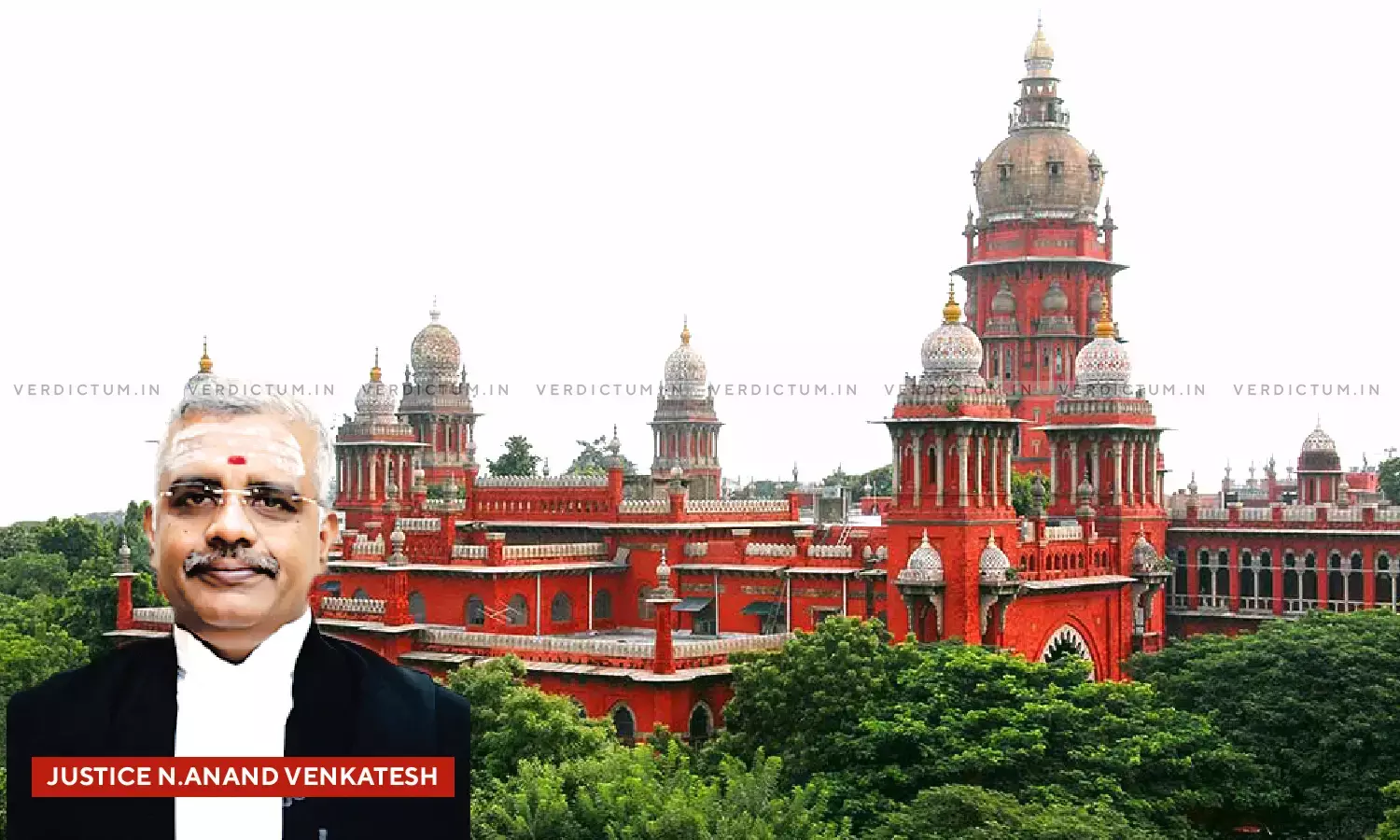Woman Has An Identity That Cannot Be Taken Away Based On Her Martial Status: Madras HC Permits Widow To Enter Temple

Justice N. Anand Venkatesh, Madras High Court
The Madras High Court observed that preventing widowed women from entering temples or participating in religious ceremonies under the pretext of impurity is an archaic belief that unfortunately still prevails in our society. The Court emphasised that a woman's identity and status are not diminished by her marital status and that she has the right to worship and practice religious ceremonies.
The Court further noted that such beliefs are senseless and are made by men for their own convenience. These beliefs do not hold any place in a civilised society governed by the rule of law. Therefore, the Court held that the petitioner and her son have the right to enter the temple and participate in festivals while asserting that Respondents 5 and 6 have no right to stop her.
Justice N. Anand Venkatesh held, “It is quite unfortunate that the archaic beliefs that if a widow enters a temple it will cause impurity continues to prevail in this State. Even though, the reformers are attempting to break all these senseless beliefs, it continues to be practiced in some villages. These are the dogmas and the rules framed by man to suit his convenience and it actually demeans a woman just because she has lost her husband. All this can never continue in a civilized society, which is governed by rule of law. If any such attempt is made by anyone to stop a widow from entering the temple, action must be taken against them in accordance with law. A woman, by herself, has a status and identity and that cannot in any way come down or be taken away depending upon her martial status. In view of the same, the respondents 5 and 6 do not have any right to stop the petitioner and her son from attending the festival and worshiping God”.
Advocate V. Elangovan appeared for the Petitioner and Additional Public Prosecutor A. Damodaran appeared for the Respondents no. 1 to 4.
The Petitioner’s husband was the Pujari of the Periyakaruparayan temple, and after his death, the temple decided to conduct the festival. The Petitioner and her son wanted to attend, but Respondents 5 and 6 allegedly threatened the Petitioner not to enter the temple as she was a widow. She made a request for police protection to the respective authority, but her request was not considered. Therefore she filed a Writ Petition was filed seeking police protection to enter the temple premises and attend the festival.
The Court directed Respondent 4 (Police) to summon Respondents 5 and 6 to inform them that the Petitioner and her son could enter the temple. An action could be taken against Respondents 5 and 6 if they create a law and order problem.
“In the light of the above discussion, there shall be a direction to the fourth respondent police to call the respondents 5 and 6 and clearly inform them that they cannot stop the petitioner and her son from entering the temple and attending the festival. If, in spite of the same, if the respondents 5 and 6 attempt to create a law and order problem, action shall be taken against them immediately. The fourth respondent shall ensure that the petitioner and her son participate in the festival both on 09.08.2023 and 10.08.2023”, the Court asserted.
Accordingly, the Court disposed of the Petition and directed the Respondent 4/ police officials to ensure that the Petitioner and her son participate in the festival.
Cause Title: Thangamani v The Collector

